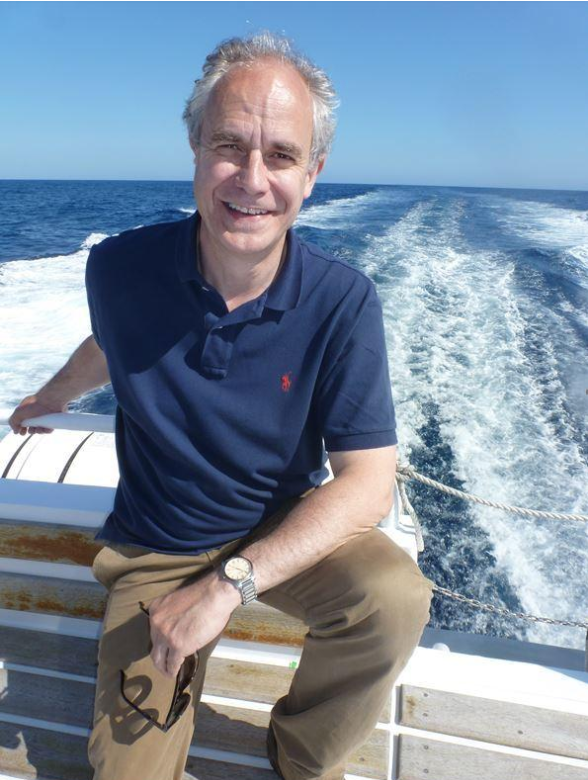Campaigner and author Charles Clover gave a damning assessment of the failure of Scottish and UK governments to protect our seas in an interview for today's Herald magazine. Two things they should be doing, but are not, he said, are “keeping catches down to maximum sustainable yield and protecting their marine protected areas”.
Clover, who is the author of a new book Rewilding The Sea: How To Save Our Oceans, said, “The population of cod off the west of Scotland has declined by 92 percent since 1981 - primarily because of overfishing. this is the biggest decline of any UK cod stocks. If any figure showed you that what we’re doing is wrong, it's this. Stocks have gone down and continued to go down recently because we’re not even doing the most basic things right. In the UK we’re not even complying with the scientific advice on 65 percent of the stocks that we share with the EU.”

He blamed the collapse of these stocks on "conscious decisions by the Scottish and UK governments".
"The choice," he said, "has been made to sacrifice cod stocks for short term profit maximisation - ignoring scientific advice and pandering to powerful industrial fishing interests at the expense of the marine environment, sustainable fisheries and small scale fishermen. We were promised world leading fisheries management after Brexit: instead what we’ve seen is an inability to get even the basics right. The yawning chasm between rhetoric and action renders a lot of the good words meaningless."
The problem, he said, was "government going on listening to vested interests.”
Clover, who is the executive director of the Blue Marine Foundation and previously wrote a landmark book on overfishing, The End of The Line, was interviewed ahead of an event at the Edinburgh International Book Festival on August 22 as part of a Herald magazine article on the people who are rewilding our seas.
"The biggest threat," he observed, "to the marine environment is overfishing using destructive gears. What we see is a huge gap between rhetoric and the decisions that are actually made. We are promised ‘gold standard’ sustainable fisheries and instead we get two thirds of catch limits being set too high. This is despite the UK Fisheries Act - which the Scottish Government agreed with - requiring them to restore stocks to healthy levels."
"The UK," he said, "is signatory to numerous international treaties and commitments (including the UN Development Goals, Convention on Biodiversity, UNCLOS) that require fishing above sustainable levels to end by 2020. SO either the governments of the UK and Scotland are lying now or they were lying then – it seems increasingly obvious that they simply didn’t mean these commitments when they made them. They were happy to get the good press for making good commitments and have then simply ignored them. If the UK isn’t willing to even end overfishing how can they claim to be a world leader on conservation?
Clover commented on the recent report, Spatial Squeeze in Fisheries,which predicted that government policies around wind farm and tidal power as well as and marine protected areas could mean more than half of all fishing grounds could be lost to the fleet by 2050. The Scottish Fishermen’s Federation, who co-commissioned the report, described this as “frightening”.
“Why is that so terrible?” he said. “Fishing isn’t banned in marine protected areas – it's just trawling which is a massively over-capitalised thing, making peanuts on very low margins most of the time. It’s not a very sensible industry. And by the way they’re called marine protected areas because the public think they are protected, but they aren’t.”
A core mission of Clover’s Blue Marine Foundation is campaigning for marine protected areas, and their goal is for at least 30 percent of the world’s ocean to be protected by 2030. A recent campaigning victory was the banning of bottom trawling and dredging from a 12,000 sq km area of Dogger Bank, previously what is sometimes called a “paper park”, which, though protected, had seen bottom trawling and dredging triple there between 2015 and 2021.
One of the easiest way of protecting the seas, he noted, was closed areas. “They are the easiest things to police because nobody is allowed to do anything in them and they can be for fisheries purposes. There are lots fisheries closed areas around the world trying to recover populations of fish,”
He added, “I’m not saying, as some people are saying, don’t trawl at all. I’m saying decide where you’re going to trawl. And subject it to an environmental assessment which every other industry has to go through. What’s the best way of achieving the result? Industrial fishing like trawling and dredging has never had to do that.”
Clover also backs the three-mile limit which would ban trawling and dredging from an area stretching out to that distance from our coasts. From 1889-1984, such a limit existed and it is currently being advocated by, amongst others, Scottish charity Open Seas. “I don’t think there are very good reasons against it,” said Clover. “The fish stocks are very heavily depleted. We know that fishing by certain means depletes them less and that creeling is an activity which does need control but does less damage to the seabed. An activity that damages the seabed and damages the fish stocks, doesn’t seem to be a particularly clever idea. We had more fish in Scotland when we had a three-mile limit. So what is the argument against it, exactly? Other than pure prejudice.”
He called for the Scottish Government “to stop this huge gap between the rhetoric and the scientific reality”.
“We’re not even doing the things that we’ve known for forty years you need to do, which is to adhere to the scientific advice. We’re not adhering to the scientific advice on 65 percent of the quota stocks in EU and UK waters. That is disgraceful. So, figure out how to do it.”
"We’ll hear lots of largely meaningless statements about ‘balancing’ socioeconomics and the environment - but what we'll get is continued massive overexploitation, depleted stocks being sacrificed, and zero serious attempts to restore our seas. The most baffling thing is that the sea doesn’t need much to recover – it just needs to be left alone, exploitation rates must be sustainable and take into account the wider marine environment and some of the sea must be left to its own devices."
He also complained that while there is a rule against discarding, the practice was still going on – as a result of the fishery being mixed. “If you can’t manage your fishery and the way you have ordained by law that you should be doing it. You really do need to think a bit more about whether you need to do some decommissioning or have large areas where you can’t fish for recovery purposes.”
“But,” he said, on a note of optimism, “as my book says there are multiplying examples of tendrils of hope. We got it right with the bluefin tuna after much lobbying and campaigning from people like myself and others. We complied with scientific advice. What happens? We’ve got bluefin tuna in the English Channel. We’ve got the bluefin tuna around Jersey. We’ve got bluefin tuna in the Celtic sea off the west of Ireland, off the west of Scotland and even off Norway, which we haven’t had for 6-7 decades. That’s what happens if you do it right. It’s so easy to get this right. And yet government continues to get it wrong.”
Charles Clover & Laline Paull: Secrets of the Ocean is at the Edinburgh International Book Festival on August 22







